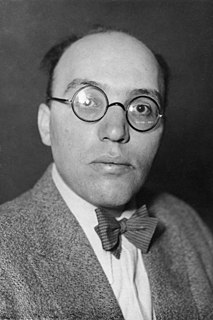A Quote by Tony Kushner
There are two strains, I think, in American playwriting, of importance. One is traditional narrative realism, which is definitely my strain, and then the other great contribution is American musical theater, which is a whole other kettle of fish.
Related Quotes
I think American actors are much more intimidated by Shakespeare. I actually want to do this Shakespeare play in New York, but I think it's interesting that there's this gaping hole in the repertoire in the American theater, which is Shakespeare. It's hardly ever done, compared to how often it's done in other companies, not just Britain. Someone from the Roundabout Theater Company - I said, "You never do Shakespeare." And he said, "Yes, we're not very good at it." And I thought, "What a terrible thing to say.".
Evidently, there are many great American writers. But sometimes it can feel as though American fiction is dominated by relatively linear narrative form, with a heavy emphasis on psychological realism. If you limit yourself to a certain kind of American literary fiction, it's easy to forget about the different kinds of books that are being written. You can forget to be ambitious, both as a reader and a writer.
I think of myself as a narrative artist. I don't think of myself as a novelist or screenwriter or playwright. All of those modalities of processing and experiencing narrative are obviously very different, and I'm not sure that I prefer any one to the other. I think the novel gives you the opportunity to have a kind of interiority that you can't have in the theater, which is pure exteriority.
I have an identity crisis which is not resolved because I'm a dual citizen. My whole family is American, and I was born in India but I was raised in Canada. But all my extended family is American, I've held an American passport and I've spent my whole adult life in between New York and LA. So I feel like an American... and I also feel like a Canadian! I wish more people were dual citizens and then I wouldn't feel like such a freak.
We're dealing with music that is being played by traditional instruments in a specifically built building called a concert hall.
But classical is not - the reference is wrong, because classical on one hand refers to one period in musical history, which is Mozart, Hayden, Beethoven, which is a fine period in musical history, but it was a while ago.On the other hand, it sort of alludes to some kind of "class," which A, is not true; B, is kind of detrimental to the whole idea. Because the point is that this music is available and it's actually relatively reasonably priced.





































